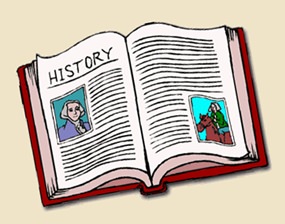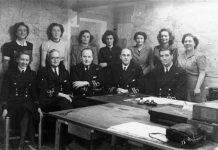Today is Thursday, Feb. 4, the 35th day of 2016. There are 331 days left in the year.
Highlights in history on this date:
1585 – France’s King Henry III refuses sovereignty of the Netherlands.
1783 – Britain declares a formal cessation of hostilities with its former colonies — the United States of America.
1789 – George Washington is elected president of the United States.
1874 – British forces under Garnet Wolseley burn Kumasi, Ghana, ending Ashanti War.

1887 – The Interstate Commerce Commission is established to regulate the transport of passengers and goods across state lines by land and water.
1899 – Filipinos stage revolt against United States because independence is not granted.
1922 – Japan agrees to restore Shantung to China.
1938 – Adolf Hitler assumes office of German war minister and names Joachim von Ribbentrop foreign minister.
1945 – U.S. President Franklin Roosevelt, British Prime Minister Winston Churchill and Soviet leader Josef Stalin begin a wartime conference at Yalta.
1948 – Ceylon — now Sri Lanka — becomes self-governing dominion in British Commonwealth.
1970 – U.S. President Richard Nixon orders all federal agencies to stop polluting the air and water.
1972 – Britain and nine other nations recognize East Pakistan as independent nation of Bangladesh.
1974 – Newspaper heiress Patricia Hearst is kidnapped in Berkeley, California, by the Symbionese Liberation Army.
1990 – Terrorists ambush bus carrying Israeli tourists in Egypt, killing nine people and wounding 20.
1992 – Rebel troops attempt overthrow of Venezuelan President Carlos Andres Perez. The coup leader, Hugo Chavez, wins the presidential elections in 1997.
1995 – Chechen rebels shoot down first Russian jet fighter of the war, downing an Su-25 with anti-aircraft guns near Grozny.
1997 – In Israel’s worst-ever military air accident, 73 soldiers die when two CH-53 Sikorsky transport helicopters ferrying elite troops to Lebanon collide in heavy fog and rain.
1998 – A 6.1-magnitude earthquake and subsequent tremors in Afghanistan’s remote northeast kill at least 4,500 people.
2001 – Israel’s powerful ultra-Orthodox religious bloc throws support behind hard-liner Ariel Sharon, giving another boost to the front-runner in election for prime minister.
2003 – Both houses of the Yugoslav parliament vote to adopt a new constitutional charter, replacing the Federal Republic of Yugoslavia with a less binding union, known as Serbia and Montenegro, between its two constituent republics.
2005 – Ukraine parliament confirms Yulia Tymoshenko as the country’s new prime minister and gives the firebrand of the country’s “Orange Revolution” protests the go-ahead to set the ex-Soviet republic on a new, westward course.
2007 – NATO-led troops kill a senior Taliban leader in a precision airstrike near a southern Afghan town overrun by militants. .
2008 – Egyptian forces seal the last of the breaks in the Gaza-Egypt barrier broken down by Hamas militants, ending 12 days of freedom for Gaza’s 1.5 million Palestinians.
2009 – Armed Hamas police break into a Gaza warehouse packed with U.N. humanitarian supplies and seize thousands of blankets and food packages.
2011 – President Barack Obama appeals to Egyptian President Hosni Mubarak to focus on his legacy and begin an orderly process to relinquish the power he has held for 30 years. But Obama stops short of calling for Mubarak’s immediate resignation.
2012 – Russia and China veto a U.N. Security Council resolution aimed at ending Syria’s bloodshed, despite international outrage over a devastating bombardment of the city of Homs by President Bashar Assad’s forces.
2013 – British scientists announce they have rescued the remains of King Richard III — a scarred and broken skeleton unearthed under a drab municipal parking lot.
2015 — Jordan calls for a decisive battle against the Islamic State group after the militants burn a Jordanian pilot in a cage and gleefully broadcast the horrific images on outdoor screens in their stronghold.
Today’s Birthdays:
Tadeusz Kosciuszko, Polish and American independence fighter (1746-1817); Friedrich Ebert, German president (1871-1925); Fernand Leger, French painter (1881-1955); Charles A. Lindbergh, U.S. aviation pioneer (1902-1974); Isabel Peron, former Argentine president (1931–); Dan Quayle, former U.S. vice president (1947–); Alice Cooper, U.S. rock singer (1948–); Clint Black, U.S. country singer (1962–); Natalie Imbruglia, Australian singer (1975–).
Thought For Today:
No human creature can give orders to love — George Sand, French author (1804-1876).
Copyright 2016 The Associated Press. All rights reserved. This material may not be published, broadcast, rewritten or redistributed.




